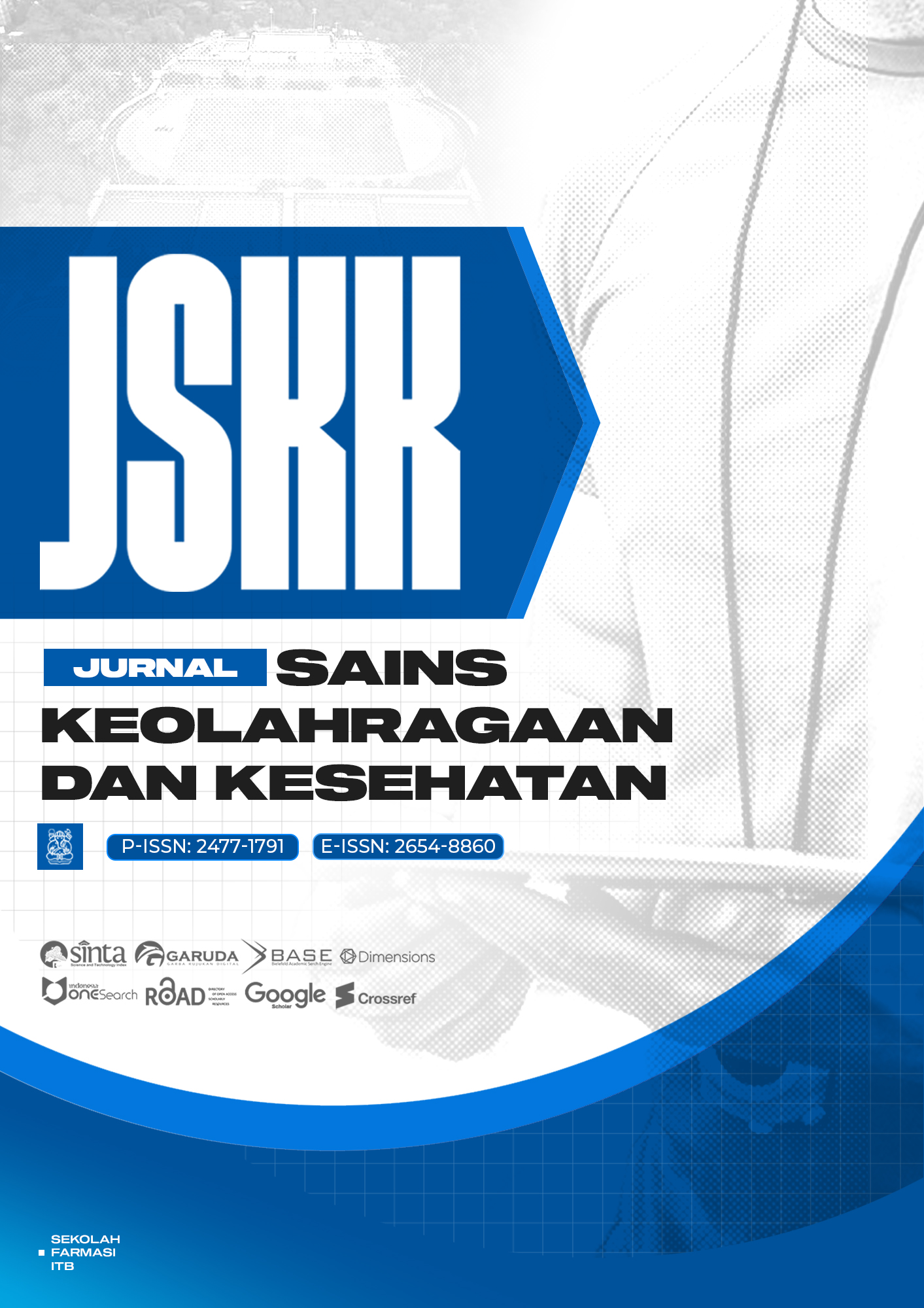Self-Efficacy in Sports: A Bibliometric Study
Identification of Key Contributors and Future Research Directions on Self-Efficacy in Sports through Bibliometric Approach
DOI:
https://doi.org/10.5614/jskk.2025.10.1.9Abstract
Objectives of this study are to map the historical developments, major trends, academic collaborations, and dominant themes in self-efficacy research in the field of sports and physical activity from 1982 to 2025. This study also identifies key contributors and future research directions using a bibliometric approach. Methods Data were collected from the Scopus and Web of Science databases using relevant keywords such as "self-efficacy" and "sport" or "physical activity. The analysis was conducted with the help of VOSviewer software to visualize collaboration networks, keyword co-occurrence, and thematic dynamics. Bibliometric indicators such as publication count, citations, h-index, and annual trends were used to describe the research landscape. The analysis shows that self- efficacy is a central concept strongly associated with motivation, athletic performance, rehabilitation, and mental health. More than 3,000 publications were identified during the analysis period, with a significant increase occurring since the early 2000s. The United States was recorded as the most productive country, with the University of Illinois as the top contributing institution, while Edward McAuley and Albert Bandura were identified as the most cited authors. The findings provide a foundation for developing evidence-based interventions and encourage multidisciplinary collaboration and more inclusive, sustainable sports policies.
Downloads
Published
How to Cite
Issue
Section
License
Copyright (c) 2025 Nabella Ayu Wulan, Dini Rahma Bintari

This work is licensed under a Creative Commons Attribution-ShareAlike 4.0 International License.
This is an open-access article distributed under the terms of the Creative Commons Attribution-ShareAlike 4.0 International License which permits unrestricted use, distribution, and reproduction in any medium. Copyrights of all materials published in JSKK: Jurnal Sains Keolahragaan dan Kesehatan are freely available without charge to users or / institution. Users are allowed to read, download, copy, distribute, search, or link to full-text articles in this journal without asking by giving appropriate credit, provide a link to the license, and indicate if changes were made. All of the remix, transform, or build upon the material must distribute the contributions under the same license as the original.











